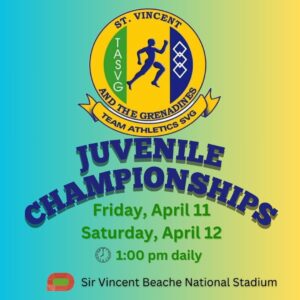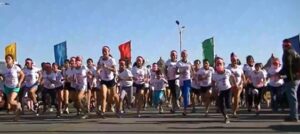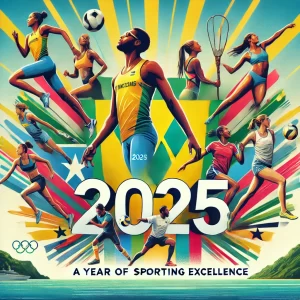Sport and nation building
Over the centuries much has been said and written about the power of sport.
Given the popularity of sport, world and national leaders are anxious to devote much attention to its potential for good. These leaders are often accorded larger than life statuses and the unsuspecting populations across the world are often led to believe that the leaders are infallible. For this reason, they hang on to their every word, almost as if they are all gospel. Unfortunately, the same occurs regarding celebrities, many of whom are encouraged by their agents, friends, and the media, to make comments on issues about which they are generally ignorant. But their popularity leaves them almost untouchable, and they become advocates of whatever ‘cause’ they comment on.
Nelson Mandela is often referenced across the world as an advocate of sport as a major contributor to the development of society. He spoke on the power of sport. This was however against the backdrop of a South African nation that had imprisoned him for 25 years, after which, once given his freedom, elected him its president. The nation’s hosting of the Rigby World Cup under his presidency, appeared to the protagonists of sport as a vehicle for good, that the experience has become an example to the world and is cited by almost all organisations seeking to promote sport amongst societies everywhere.
Religion and sport
Greek mythology has become inseparable from the history of sport. Indeed, it is not possible to speak about sport and particularly the Olympic Games without persistent reference to Greek Mythology and the culture of Ancient Greece.
Generally accepted by modernists as the ‘birthplace’ of the Olympics, Greek culture has set the standard for the ‘values’ that have, over time, become crystallised in the International Olympic Movement, promoted by the International Olympic Committee (IOC) as the ‘Fundamental Principles’ of ‘Olympism’, permanently enshrined in the Olympic Charter.
The Olympic Charter is not just the ‘Constitution of the IOC, but of all sporting organisations that are accepted within the Olympic Movement. These organisations are held accountable by the Charter as interpreted by successive generations of members of the IOC, all of whom essentially pledge loyalty to the President.
Over the more than a century of the IOC and the Olympic Movement, Presidents have almost become demi-gods of sport, wielding tremendous influence on global sport by virtue of the wealth generated by the Olympic Games and the maintenance of a very strong brand, the Olympic Rings, and a marketing strategy supported by the IOC’s ‘commandist’ governance system that is in many respects, a sort of benevolent dictatorship.
Close examination of the Olympic concept of Olympism, world reveal little or no deviance from the fundamental values inherent in religion.
One may therefore argue that the values promoted by the International Olympic Movement, since its establishment, is consistent with those crafted by Ancient Greeks, solidly founded on, and grounded in Greek Mythology.
It may well be that it is the link between sport and religion that motivated many of the founding fathers of the Modern Olympics to place emphasis on ‘amateurism’ in the early years of their establishment. In that period, amateurism may well have been associated with ‘being good’ in the religious sense. It resonated with the religious concept of purity. Not surprisingly, those who accepted monetary prizes were deemed to be desecrating some sort of fundamental principle and were considered unworthy of the award to winners, even though they were the outstanding achievers of success in the events on offer at the Quadrennial sporting spectacle.
The demi-gods of the IOC determined their fate – retrieval of medals won and removal from the Olympics, for as long as they thought fit.
Not surprisingly, the several international sports federations (IF) spawned by the desire to be part of the Olympic Games, readily adopted their own versions of the ‘master plan’, the Charter, of the IOC, as they formulated their respective Constitutions and competition rules. It is difficult to say that they may well have, unwittingly, included in their governance documents, the same adherence to the prevailing religious values, as the IOC had done and continued to do.
Interestingly, the religious organisation’s stance on the perception and role of women was almost meticulously manifested in both the Constitutions and competition rules of the IFs. Not surprisingly, as happened in other aspects of societal development, women opted to present themselves as men, in sporting endeavour, only to be exposed decades later. Some may not yet have been exposed.
Reality check
The history of sport does not necessarily always support the lessons that have so often been proffered by the advocates of its role in creating harmonious societies, a panacea for what ails the world.
As the world became more ‘scientific’ it was adjudged to be moving towards secularisation, becoming less religious. The challenges to amateurism were supported by the financial rewards on offer to athletes, then to their agents and coaches. The die had been cast and today, the floodgates are being forced open, everywhere.
Professionalism in sport accompanies the rapid growth of science and secularisation. Religious leaders have themselves surrendered, in many instances, to the growing attraction of mammon, acknowledging that religion is a social institution that cannot help but reflect the society in which it exists.
Changing beliefs have given rise to changing values and hence, to different clauses in constitutions and competition rules.
World Athletics, the governing body for the sport of track and field athletics, is the first to ‘draw blood’, declaring to the world that it will provide cash awards to winners in this year’s Summer Olympics in Paris, France. The announcement reverberated around the international sport community associated with the International Olympic Movement, leaving the demi-gods all twisted up. The latter, instead of embracing change, retreated into their treasured cocoon of comfortable mediocrity, lethargy, and insensitivity, ignoring the decades of benefitting from the financial largesse of TV, social media, and gate revenues, all created by the blood, sweat and tears of countless athletes and coaches, not by the ‘Lords of the Olympic Rings’.
The responses thus far are expected.
The challenges to the Olympic fiefdom have begun to blossom, especially amongst the athletes whose labour has been ignored for far too long.
Unfortunately, the Lords of the Rings can find no solace in their retreat.
Religious organisations everywhere, are themselves returning to the advocacy that started with Pope John Paul XXIII, when he swung open the doors of the Catholic Church, allowing for a ‘breath of fresh air’, and historic cleansing.
Mandela insisted on the establishment of a Truth Commission upon his ascension to the Presidency of a post-Apartheid South Africa. He thought that truth was a necessary precursor to justice and ultimately, reconciliation.
The international sport movement is only now beginning to understand the philosophical underpinnings of Mandela’s thesis.
Sport and nation building
Mandela’s insistence that sport can change the world emerged out of his experience in South Africa’s victory in the Rugby World Cup following his ascension to the nation’s presidency. He spoke from his own most recent experience at the time. He never lived long enough to witness the challenges in forging a sustainable strategy that would consistently yield support for his thesis.
In the Caribbean, political leaders somehow believe that they alone can and must determine the future of the societies that elected them to office. It is difficult to find any of our contemporary leaders in the Caribbean today, who are adept at practising consultative democracy in any shape or form. The unfortunate reality is that they all eagerly proclaim that they believe in genuine democracy. The contradiction is clear and pervasive.
The truth is that sport has immeasurable potential to bring people together, but this does not. necessarily translate into unity, not even at the individual or team level, to say nothing about the community and national levels. This is evident in the racial epithets that are flung at athletes and coaches in football and other sport competitions in different societies around the world. These reflect the reality of social dysfunction, discord, racism, and unquenchable hatred.
Political leaders delude themselves first and thereafter, their supporters, into a debilitating acceptance that sport has some sort of inherently benevolent powers to heal society. That is utter nonsense. In every instance in every society, the hard work to repair, reconcile and reconstruct does not allow for any shortcuts. The catharsis is compulsory.
We must all put an end to the ‘politricking’.
End the insipid political gamesmanship.
Our sporting organisations must confront truth and begin the process of healing. Begin the process of change, now!





